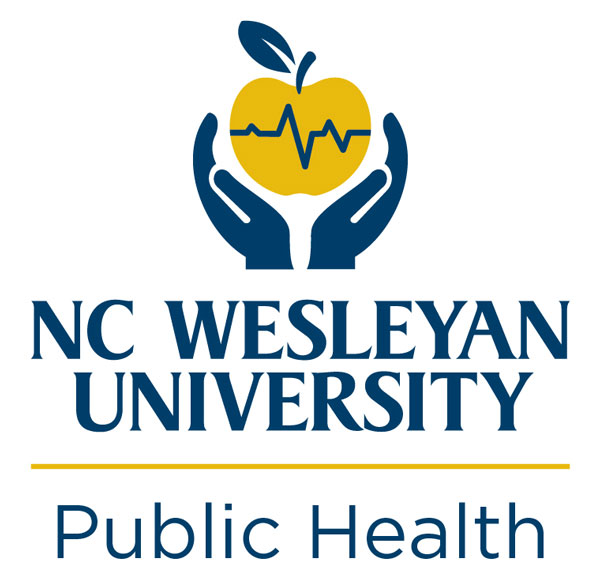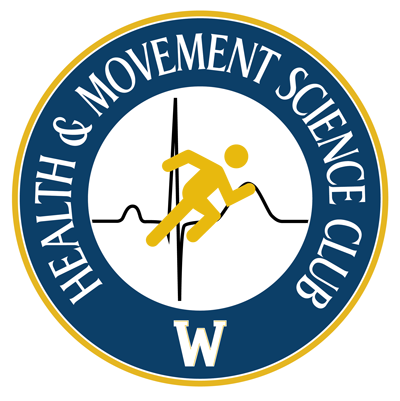Health is a human right. Make it a reality with community-engaged research and practice, passionate partnership, and practical skills.
What You’ll Study
Public Health Studies explores the biological, social, educational, organizational, geographic, economic, and policy factors that impact health as well as strategies for preventing disease, eliminating health disparities, and striving toward health equity.
As part of the Public Health Studies major at NCWU, students learn about and apply research and analytic strategies, develop and practice program planning, implementation and evaluation skills, and explore policy development and advocacy.
NCWU Public Health program engages students in academic and practice-based experiences aimed at improving the health of the communities we serve. Students who complete the Public health Studies program at NCWU are academically prepared to pursue advanced training and certifications in the field, including the Certified Health Education Specialist (CHES) certification by the National Commission for Health Education Credentialing (NCHEC), the Physical Activity and Public Health Specialist (PAPHS) Certificate from the American College of Sports Medicine, and others.
You will learn from world-renowned and accomplished faculty that mentor students through the latest research and practical applications in Public Health.

Faculty & Staff
Email any of our advisors with any questions you have about completing this program.
Shannon Crowley, Ph.D.
Associate Professor of Public Health, MPH Program Director

Shannon Crowley, Ph.D.

Tyana Ellis, Ph.D.
Meredith Gringle, Ph.D.
Assistant Professor of Public Health, Program Director of Public Health Studies

Meredith Gringle, Ph.D.
This program is designed for those who seek to work in fields aimed at improving the health of individuals, populations and communities. The program prepares students to enter a multitude of public health careers including working with community organizations, government agencies, non-profit organizations, public health, corporate organizations, health care settings, college/university campuses and schools. The program may also serve as a stepping stone for students to pursue graduate and pre-professional programs in public and allied health fields. The program in Public Health is designed to give students the experience and background to pursue the National Commission for Health Education Credentialing (NCHEC) Certified Health Education Specialist (CHES) certification.
Course Outline for Public Health Major
This interdisciplinary degree includes courses in the core tenants of public health such as health behavior change, environmental health, epidemiology, research and statistics, health policy, and planning, implementation and evaluation of public health programs. We emphasize strong scholarship, practical skills, and curiosity all as part of our commitment to helping to create and support healthy communities!
As part of the Public Health Studies Program, students receive “real world” experiences relevant to public health practice, including service learning opportunities, public health practicums, and public health internships. By working directly with community partners, students have opportunities to apply the knowledge and skills gained in their undergraduate courses to public health problems, while simultaneously helping to improve the health of our communities. In addition, Public Health students have other professional development opportunities including research experiences; preparation for advanced certifications such as the Certified Health Education Specialist (CHES), the Physical Activity and Public Health Specialist Certificate, and others; and the NCWU integrated 4+1 bachelor’s to Master’s program which allows students to obtain their bachelor’s degree and the Master of Public Health (MPH) degree in 5 years (vs. the typical 6 years). For more information about the integrated 4+1 MPH program, click here.
NCWU Public Health program is strongly committed to the communities we serve. We proudly incorporate this commitment within our curriculum, through service-learning opportunities, community partnerships, and internship experiences because we believe that building strong relationships is crucial for training the next generation of public health professionals.
What are the courses like in Public Health Studies at NCWU?
Check out our latest university catalog for learning goals, course descriptions and suggested plans of study for NC Wesleyan University’s Public Health Studies Program.
NCWU offers a Public Health minor that students learn to develop a basic understanding of public health, including the biological, social, economic, quantitative, geographic, and educational components of health and health disparities within and across populations. The minor in public health is designed to help students consider and navigate the complex issues that influence health and health behavior, in addition to understanding public health approaches for the promotion of health and prevention of disease.

Majoring in Public Health Studies offers students the opportunity to engage in what CEA Winslow called the “science and art” of public health. Public Health Studies explores the biological, social, educational, organizational, geographic, economic, and policy factors that impact health as well as strategies for preventing disease, eliminating health disparities, and striving toward health equity.
- Apply research and analytic strategies, develop and practice program planning, implementation and evaluation skills, and explore policy
development and advocacy. - Understand and apply the basic principles of epidemiology, including rates, risk factors, disease determinants, causation, and public
health surveillance. - Grasp the history and role of public health in disease prevention and the importance of evidence-based public health practice.
- Comprehend the factors involved in population health and the basic processes, approaches, and interventions addressing major health-related
needs and concerns. - Recognize the social determinants of health, health behavior, and health policies influencing health outcomes.
- Identify population-based needs for public health programs and initiatives, develop appropriate programs, and evaluate their
effectiveness. - Demonstrate proficiency in the assessment, planning, and evaluation of public health programs, interventions, and initiatives.

Research has consistently shown that healthy behavior is one of the greatest determinants of overall health. In the U.S., many of the most serious chronic diseases (diabetes, cardiovascular disease, certain cancers, others) are strongly associated with health-damaging behaviors such as physical inactivity, poor diet, smoking, and other health-harming behaviors.
The field of Public Health focuses on identifying, intervening on, and reducing health damaging behaviors in order to improve the health of individuals, communities, and populations. In addition to the core tenants of health promotion, the Public Health program at NCWU has a unique emphasis on the role of physical activity in health and disease.
Career Options in Public Health
Students who major in Public Health have many career options available that include:
Public Health Educator: Designs and implements educational programs and campaigns to promote healthy lifestyles and prevent disease.
Health Policy Analyst: Researches and analyzes policies related to public health and advises on their development and implementation.
Environmental Health Scientist: Investigates how environmental factors affect human health and develops interventions to mitigate risks.
Public Health Consultant: Provides expert advice to organizations on public health issues, programs, and policies.
Global Health Professional: Works on international health issues, often focusing on health disparities, infectious diseases, and development projects.
Health Services Administrator: Manages healthcare facilities, programs, or departments, focusing on improving efficiency and quality of care.
Public Health Nurse: Provides healthcare services, education, and advocacy in community settings, focusing on health promotion and disease prevention.
Community Health Worker: Works directly with communities to improve health outcomes through education, outreach, and support services.
Safety and Occupational Specialist: Ensures workplace safety and compliance with health regulations to prevent injuries and illnesses.
Public Health Research Professional: Conducts research on various public health issues to inform policy, programs, and practices.
Nutritionist/Dietitian: Promotes healthy eating habits and develops nutritional programs to improve public health.
Health Communication Specialist: Develops communication strategies to inform and educate the public about health issues and policies.
Maternal and Child Health Specialist: Focuses on the health and well-being of mothers, infants, and children through programs and policies.
Public Health Informatics Specialist: Uses data and information technology to improve public health practice and outcomes.
Behavioral Scientist: Studies the behaviors that affect health and develops interventions to promote healthier lifestyles.
These careers in Public Health can be found in many settings, including, but not limited to:
- Non-profit and voluntary health and human services agencies
- Public health departments
- Worksite health and wellness programsUniversity health and wellness programs
- Public health departments at the state and community level
- Hospitals and health clinics
- Community health organizations
- Reproductive health clinics
- Public Health Research fields
For more, please visit the Centers for Disease Control (CDC) careers page: https://jobs.cdc.gov/
Wondering what you can do with a degree from NCWU’s Public Health major? Check out these resources from NCWU Career Development & Leadership and the Occupational Information Network (O*NET).
Wesleyan is dedicated to assisting students in their professional development offering resources and guidance for hands-on learning experiences through internships, assignments within the courses and job search resources. Let us help you focus on your education and career at the same time!
External resources for Public Health information and helpful organizations.

The purpose of the Health & Movement Science Club is to provide students Public Health and Exercise Science an opportunity to establish a connection between NCWU and the community of Rocky Mount through fitness & wellness events. This will be achieved by promoting social, academic and professional relationships both on and off campus.
NCWU Office of Undergraduate Research
The NCWU Office of Undergraduate Research (OUR) is supports and promotes opportunities for students in all disciplines to engage in advanced inquiry through research, creative, and scholarly experiences. To promote collaboration between faculty members and students, and to enhance professional advancement and life-long learning through research, scholarly, and creative experiences.
Learn about the NCWU Office of Undergraduate Research at research.ncwu.edu.
24/7 Tutoring Services. Free & Easy.
North Carolina Wesleyan University is partnered with Brainfuse, a complimentary online tutoring service, provided to all Wesleyan students. This service is available 24 hours a day, seven days a week and features live tutoring in the subjects of writing, reading, math, computer and technology, science and business.
Student Organizations
Be engaged at NCWU!
Choose from 30+ student-led clubs and organizations to connect with other students who share your academic interests or… create your own.
Transfer Articulation Agreements
To simplify the transfer process, NC Wesleyan University has a number of partnerships with other community colleges, universities and institutions that allow students to enroll at NCWU with simple pathways. These agreements outline the courses you should take to prepare for transferring to NCWU. Review the full list of transfer articulation agreements to see if your institution is listed.






